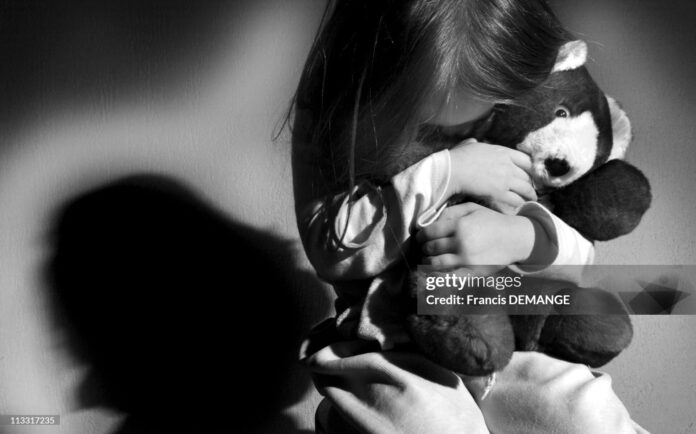Not long ago, I was at a birthday party for one of my son’s friends, and we began discussing a recent incident at my son’s school, where two girls had decided to skip school and were reported missing for a day. Thankfully, they were found unharmed, but in those 24 hours, I could only imagine the distress their parents must have endured. I shared with my friends that I used the incident as a teaching moment for my son, discussing the potential dangers that could arise if someone were kidnapped. I encouraged them to have similar conversations with their children. However, one friend objected, dismissing such warnings as “conspiracy theories” and unnecessary fearmongering.
Embed from Getty ImagesWith recent headlines like P Diddy’s arrest and the earlier Epstein scandal, I began to question why so many people brush aside the horrific reality of child exploitation as mere conspiracy. The truth is, that these high-profile arrests barely scratch the surface of a monstrous global problem that has persisted for decades. This crisis is known as child sex trafficking — a heinous industry where children are abducted and forced into sexual slavery.
Embed from Getty ImagesWhy Is Child Trafficking Not Widely Discussed?
One may wonder why this horrific issue is so often underreported. The reason is that it implicates powerful global elites and high-ranking government officials with a multitude of power, money, and influence. We’re talking artists from around the world, the US and other government officials, the Vatican, and Buckingham Palace as key clients.
Journalist Dan Davies, in *Savile: The Beast in the Mask*, notes that “the institutions meant to safeguard the vulnerable often fail when those in power exploit the system.” This gruesome information is actively guarded and censored, as those involved often protect their own, and there seems to be little accountability for defending these innocent children.
Conspiracy theorists frequently cite child trafficking as part of larger conspiracies, often tagged as “QAnon and Pizzagate theories,” thus giving the allegations a ridiculous context and lessening the public’s attention and concern about this matter.
In our society, many things were once called conspiracy theories, that later were proven to be true such as MK-Ultra, the Watergate Scandal, the Tuskegee Syphilis Study, COINTELPRO, and the Iran-Contra Affair to name a few. Although still unproven, but widely talked about behind closed doors, are topics like the 9/11 incident, our food and medical industries, chemtrails, HAARP, and many more. We’ll cover those at a later time. Please take note of how all these “conspiracies” have one thing in common – our government and the elites and how gruesome and outrageously bizarre they all are.
Embed from Getty ImagesThe Influence of Wealth and Connections in Abuser Protection
Cases involving powerful individuals, such as P Diddy, Jeffrey Epstein, and former BBC presenter Jimmy Savile, demonstrate how influence and connections can shield abusers. In each of these cases, the accused held power, wealth, and connections, while their victims were young, vulnerable, and often defenseless. Even when victims summon the courage to report abuse, they are often met with resistance, dismissiveness, or outright hostility from authorities or officials who may be financially or politically aligned with the accused. Victims who press charges face intimidation, forced payoffs, or blame-shifting — all part of an effort to silence them and protect high-profile perpetrators.
Embed from Getty ImagesCross-Border Complications in Child Trafficking
Another complicating factor in trafficking is that it frequently crosses international borders, creating a myriad of logistical and legal obstacles. Differing laws, definitions of trafficking, and jurisdictional boundaries make prosecution challenging and complicate efforts to protect victims. Anti-trafficking expert Siddharth Kara notes in *Sex Trafficking: Inside the Business of Modern Slavery* that “traffickers are keenly aware of legal discrepancies between countries and exploit them, moving victims to avoid detection and reduce legal risk.” Corruption creates a fertile ground for traffickers, who rely on officials’ cooperation or complacency to evade scrutiny. As former United Nations Special Rapporteur on Trafficking Joy Ngozi Ezeilo states, “corruption is both a cause and consequence of trafficking, enabling perpetrators to operate with impunity.” This corruption not only hinders law enforcement but also leaves trafficked children vulnerable and isolated in foreign territories, unable to seek help.” Traffickers also transport victims in horrendous conditions, just like this clip shows:
Children are being shipped across oceans in barge containers with little food, water, ventilation, and sanitation, in conditions that were not designed for living beings. Some workers have reported hearing cries for help but, disturbingly, these stories never reach mainstream media. Being transported without documentation often leads to further complications, as victims may end up detained as “illegal immigrants,” adding to their distress and torment.
A Call for Reform and Awareness
Addressing this sensitive issue requires systemic reform, strict border guidelines, transparency, and robust media coverage, regardless of who is implicated. Governments could implement Rapid DNA testing at borders or require verified documentation proving relationships between children and traveling adults. Additionally, films like *Sound of Freedom* (2023), should be shown freely. This film is directed by Alejandro Monteverde, based on the true story of Tim Ballard, a former U.S. Department of Homeland Security agent who left his job to embark on a dangerous mission to rescue children from traffickers in South America, that showed real-life challenges and heart-wrenching stories of children exploited by traffickers, as well as the moral and emotional complexities of his mission. Though finished years earlier, the film only found release in 2023, after Disney, which acquired distribution rights, initially chose not to release it. Why not?
Embed from Getty ImagesThere are plenty of films, books, and documentaries that highlight the impact of trafficking and the human stories behind it.
Movies: Trade (2007); Eden (2012); Taken (2008); The Whistleblower (2010);
Books: Sold by Patricia McCormick; A Walk Across the Sun by Corban Addison; The Slave Across the Street by Theresa Flores; Girls Like Us: Fighting for a World Where Girls Are Not for Sale by Rachel Lloyd; Sex Trafficking: Inside the Business of Modern Slavery by Siddharth Kara; Half the Sky: Turning Oppression into Opportunity for Women Worldwide by Nicholas Kristof and Sheryl WuDunn; Not for Sale: The Return of the Global Slave Trade—and How We Can Fight It by David Batstone
Documentaries: I Am Jane Doe (2017); Nefarious: Merchant of Souls (2011); The True Cost (2015).
This information should also be covered in school, in a class called personal safety. Where they are being taught what to look for and what to do if they find themselves in such a situation.
As humanity, need to wake up! We need to demand by peaceful demonstrations reform to current policies, attention to this matter via news, and justice for all these innocent lives that are left behind suffering alone. We need to stop caring for only our blissful lives, personal safety, profit, entertainment, and political correctness, meanwhile, the perpetrators have free rein to do as they please without any reprimand.
Just imagine, what if it were you or your child, would you then listen and care?
Would you then be humane?




